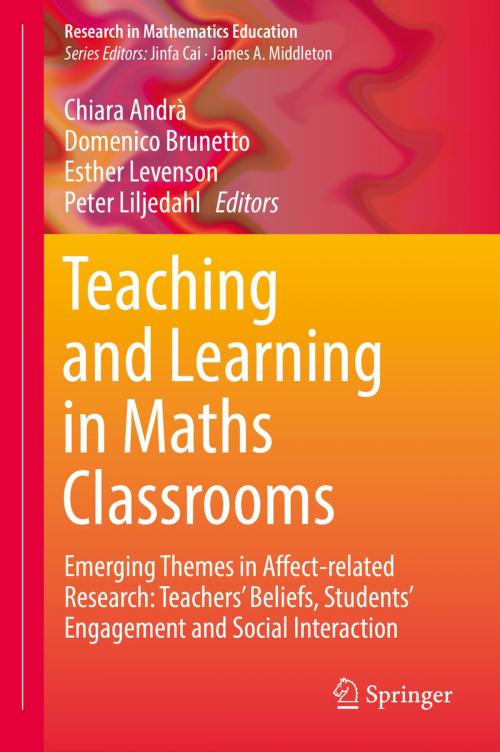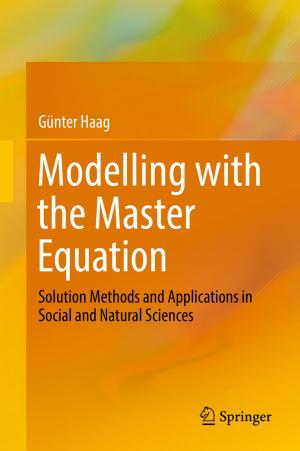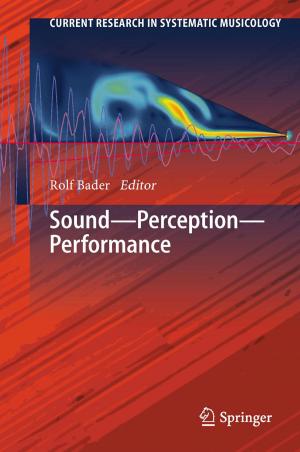Teaching and Learning in Maths Classrooms
Emerging Themes in Affect-related Research: Teachers' Beliefs, Students' Engagement and Social Interaction
Nonfiction, Health & Well Being, Psychology, Cognitive Psychology, Reference & Language, Education & Teaching, Teaching, Teaching Methods| Author: | ISBN: | 9783319492322 | |
| Publisher: | Springer International Publishing | Publication: | May 3, 2017 |
| Imprint: | Springer | Language: | English |
| Author: | |
| ISBN: | 9783319492322 |
| Publisher: | Springer International Publishing |
| Publication: | May 3, 2017 |
| Imprint: | Springer |
| Language: | English |
The book presents a selection of the most relevant talks given at the 21st MAVI conference, held at the Politecnico di Milano. The first section is dedicated to classroom practices and beliefs regarding those practices, taking a look at prospective or practicing teachers’ views of different practices such as decision-making, the roles of explanations, problem-solving, patterning, and the use of play. Of major interest to MAVI participants is the relationship between teachers’ professed beliefs and classroom practice, aspects that provide the focus of the second section. Three papers deal with teacher change, which is notoriously difficult, even when the teachers themselves are interested in changing their practice. In turn, the book’s third section centers on the undercurrents of teaching and learning mathematics, which can surface in various situations, causing tensions and inconsistencies. The last section of this book takes a look at emerging themes in affect-related research, with a particular focus on attitudes towards assessment. The book offers a valuable resource for all teachers and researchers working in this area.
The book presents a selection of the most relevant talks given at the 21st MAVI conference, held at the Politecnico di Milano. The first section is dedicated to classroom practices and beliefs regarding those practices, taking a look at prospective or practicing teachers’ views of different practices such as decision-making, the roles of explanations, problem-solving, patterning, and the use of play. Of major interest to MAVI participants is the relationship between teachers’ professed beliefs and classroom practice, aspects that provide the focus of the second section. Three papers deal with teacher change, which is notoriously difficult, even when the teachers themselves are interested in changing their practice. In turn, the book’s third section centers on the undercurrents of teaching and learning mathematics, which can surface in various situations, causing tensions and inconsistencies. The last section of this book takes a look at emerging themes in affect-related research, with a particular focus on attitudes towards assessment. The book offers a valuable resource for all teachers and researchers working in this area.















